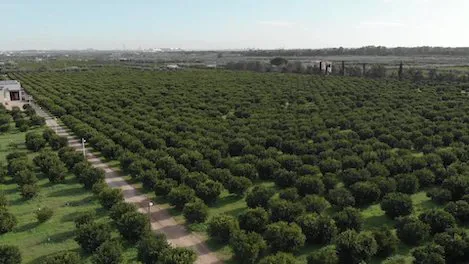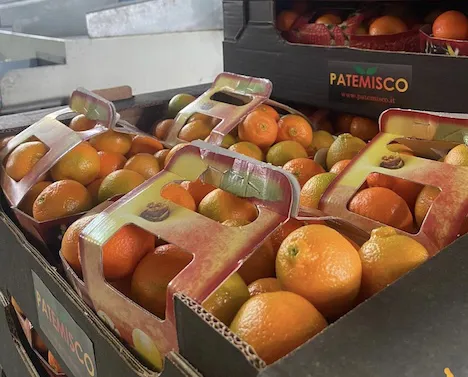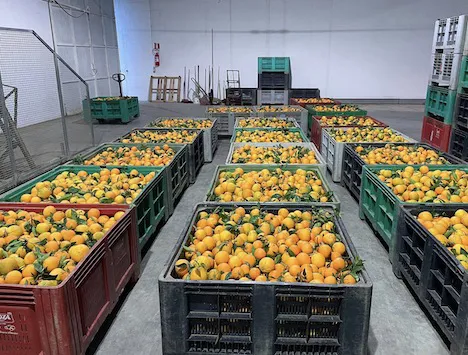"The crises of recent years has also affected the citrus sector. More and more frequently we are seeing that very good fruits do not find a market, due to foreign competition, to the point that sometimes the harvest doesn't even take place. In the last glimpse of the Apulian clementine commercial campaign, we decided to leave the fruits on the plants because the incessant rains and the sirocco winds had jeopardized the fruits," says Luciano Latorraca, owner of the Patemisco farm, which specializes in the production and processing of Navel-type clementines and blond-fleshed oranges in the Italian region of Apulia.

"This year, the production of Apulian clementines," explains Luciano Latorraca, "has decreased by about 25 percent compared to last year. Despite lower volumes, prices at the beginning of the campaign were generally not thrilling due to the drop in consumption. The market recovered in January after the holidays, partly because the fruit ripe to the right point met the needs of consumers who like to buy citrus fruits with high sugar content."

The company has recently also been developing a line of processed products, including Clementine juices and compotes. This is a highly inflated market segment, which works especially abroad since in southern Italy the culture of homemade preserves is widespread in almost every household.
"Over the years, in order to stay ahead on the markets, the sector has invested a lot on the varietal innovation front, trying to widen the harvest phase as much as possible with early and late varieties, with which we are able to fetch higher prices."

Patemisco-branded clementine juices are in high demand because they are a novelty compared to traditional citrus flavors. The fruits are harvested and processed to extract the juice, which is then filtered and pasteurized, then ready to be bottled in 200-mL sizes.
Clementine compote is processed naturally, with minimal sugar percentages and no added thickeners or coloring agents. Its uniqueness is precisely related to its ingredients, which contain a high percentage of fruit at 75 percent, with the addition of sugar at 25 percent.

"The sudden climate change of recent years," concludes Luciano Latorraca, "is endangering the agricultural sector, and not only because of the unpredictability of the phenomena that do not allow forecasts to be made on volumes and production yields. In years when late frosts or storms occur, an abundance of product happens to be unsuitable for the fresh market. This is precisely what happened, as we said earlier, this 2022/23 year. A large-scale supply chain of Apulian Clementine derivatives could bring back a second life to this product. But it would be necessary to build an alliance between the major producers, based on a common vision to gain critical mass in terms of volumes contributed to the industry."
Company history
The Patemisco company, founded in 1965, specializes in the production and marketing of oranges in the Fukumoto, Navel and Navelate varieties, as well as clementines of the Clemenruby variety. A production of about 700 tons of citrus fruits, grown in the Apulian area of Massafra (TA), on 80 hectares. Part of the production has been renewed with recent plantings of more resistant varieties, including early and late varieties. Among the brand's novelties is the conversion of the entire production to organic in 2022, given that over the years natural production has proven to be commercially rewarding. In fact, in the face of lower yields/hectare, they nevertheless obtain higher quotations.
For more Information :
Azienda Agricola Patemisco
Luciano Latorraca
Strada comunale, 48
74016 Massafra (TA)
(+39) 099 8855964
(+39) 333 7670020
[email protected]
www.patemisco.it










